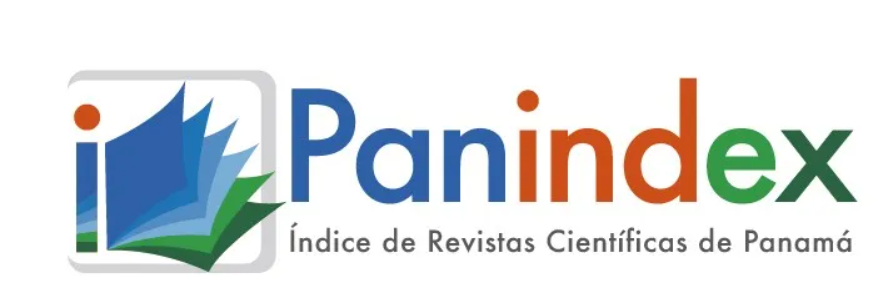Manuscripts sent to SALUTA Magazine must be original and unpublished and must not be simultaneously in the process of publication in other magazines, compilations or any other means of publication. The content of the publications and the links suggested in them are the sole responsibility of the authors and not of the METROPOLITAN UNIVERSITY OF EDUCATION, SCIENCE AND TECHNOLOGY
(UMECIT) or the magazine SALUTA. They are protected by international copyright laws as well as the logos of UMECIT AND SALUTA MAGAZINE, hence their reproduction is totally prohibited. The copyright will belong to the UMECIT.
Under a Creative Commons Attribution License authors may share work with acknowledgment of authorship of the work and initial publication in this journal.



Abstract
Background: diabetic foot is a global health problem. Patients present injury and/or ulceration of the foot, induced by sustained hyperglycemia, with or without the existence of ischemia and previous traumatic trigger. Objective: to evaluate the level of knowledge about the Diabetic Foot and the importance of its prevention. Method: quantitative research of pre-experimental design with pre and post test, contextualized in the doctor's office and family nurse number 7 of the health area belonging to the Olivos outpatientclinic of the Sancti Spíritus Province, Cuba. To diagnose the initial level of knowledge of the sample about the Diabetic Foot, a group of questions used and validated by the Delphi method and a foot care questionnaire for diabetic patients were applied. Results: the most representative age group was 45 to 55 years old with 66 patients (52.8%), of which 37 (66.66%) were female and 29 (33.33%) were male. (36%) of the population surveyed before the intervention showed adequate levels of knowledge. Conclusions: the theoretical-methodological foundations that supported the research made it possible to delve into the criteria of different specialists on important conceptions about the Diabetic Foot in Diabetes Mellitus and the preparation of the family, as well as stimulating its prevention.
Keywords
References
2. Arribasplata-Espinoza Y, Luna-Muñoz C. Risk factors associated to diabetic foot at Luis N. Saenz PNP hospital, year 2017. Rev. Fac. Med. Hum. 2019; 19( 2 ): 75-81. Disponibleen: http://www.scielo.org.pe/scielo.php?script=sci_arttext&pid=S2308-05312019000200009&lng=es. http://dx.doi.org/10.25176/RFMH.v19.n2.2070
3. Rojas-Solórzano J, Vergara-León Y, Lam-Vivanco A, Cobos-Lara I, Chamaidan Loayza J, Espinoza FM. Sensibilidad y resistencia bacteriana en pacientes con diagnóstico de pie diabético. facsalud. 2020;4(6):3-13. Disponible en: https://ojs.unemi.edu.ec/index.php/facsaludunemi/article/view/1114
4. Mendoza-Martínez P, Almeda-Valdés P, Janka-Zires M, et al. Características clínicas y microbiológicas de pacientes con pie diabético. MedIntMex. 2021;37(2):196-211. Disponible en:
https://www.medigraphic.com/cgibin/new/resumen.cgi?IDARTICULO=99359
5. Escalante-Padrón O, Hernández-Varela A, Valdés-Nápoles JL, Álvarez-Hidalgo RJ. Factores pronósticos de amputación mayor en pacientes con pie diabético sometidos a cirugía. Rev Cubana AngiolCirVasc. 2020; 21( 3 ): e125. Disponible en: http://scielo.sld.cu/scielo.php?script=sci_arttext&pid=S168200372020000300005&lng=es.
6. Riballo-Cortés R, Estepa-Luna MJ, Moya-González J. Conocimiento, actitud y autocuidado en pacientes con úlceras de pie diabético del Hospital Universitario Reina Sofía de Córdoba. Revista De Enfermería Vascular. 2019; 2(3), 11-17. https://doi.org/10.35999/rdev.v2i3.34'>https://doi.org/10.35999/rdev.v2i3.34
7. Historia de Salud Familiar. Policlínico Olivos, Municipio Sancti Spiritus.Provincia Sancti Spiritus, Cuba. 2022.
8. García-Valdés M, Suárez-Marín M. El método Delphi para la consulta a expertos en la investigación científica. Rev Cubana Salud Pública. 2013; 39(2): 253-267. Disponible en: http://scielo.sld.cu/scielo.php?script=sci_arttext&pid=S086434662013000200007&lng=es.
9. Durán-Sáenz I, Espinosa-Villar S, Martín-Diez D, Martín-Diez I, Martínez-Valle R, Val-Labaca AE. Conocimiento, actitud y práctica sobre pie diabético en pacientes o sus cuidadores en cirugía vascular. Gerokomos. 2021; 32( 1 ): 57-62. Disponible en: http://scielo.isciii.es/scielo.php?script=sci_arttext&pid=S1134928X2021000100057&lng=es. https://dx.doi.org/10.4321/s1134-928x2021000100012
10. Coronel-Carvajal C. Forma correcta de presentar los datos y uso de McNemar en las intervenciones educativas. AMC. 2020; 24(1): e6819. Disponible en: http://scielo.sld.cu/scielo.php?script=sci_arttext&pid=S102502552020000100002&lng=es.
11. Yañez-Podoroska E. Conocimientos, actitudes y prácticas sobre pie diabético en diabéticos del distrito de castilla, Piura 2018[Tesis para optar el título profesional de Médico Cirujano] Universidad Privada Antenor Orrego. Piura-Perú 2020. Disponible en: https://hdl.handle.net/20.500.12759/7575
12. Riballo-Cortés R., Estepa-Luna M. J, & Moya-González J. Conocimiento, actitud y autocuidado en pacientes con úlceras de pie diabético del Hospital Universitario Reina Sofía de Córdoba. Revista De Enfermería Vascular, 2019; 2(3), 11-17. https://doi.org/10.35999/rdev.v2i3.34'>https://doi.org/10.35999/rdev.v2i3.34
13. Álvarez-Castro HF, Torres-Cardona FE, León-Lasso VE. Protocolo de enfermería para la atención de adulto mayor con diabetes: PieDiabético. Revista Científica Mundo de la Investigación y el Conocimiento. 2018; 2 (2), 684-699. Disponible en: https://dialnet.unirioja.es/servlet/articulo?codigo=6796733
14. Martínez-Santos YL, Yagual-González NY. Pie Diabético y su relación con la neuropatía en adultos delbarrio 25 de septiembre la libertad 2018-2019 [Trabajo de investigación previo a la obtención del título de Licenciadas en Enfermería] Universidad Estatal Península de Santa Elena. La Libertad, Ecuador 2019. Disponible en: https://repositorio.upse.edu.ec/handle/46000/4855
15. Guerrero-Tobar DE.Conocimientos, actitudes y prácticas en la prevención del pie diabético en usuarios y pacientes. Hospital San Luis de Otavalo 2022 [Trabajo de Grado, previo a la obtención del Título de Licenciatura en Enfermería] Universidad Técnica del Norte. Ibarra – Ecuador 2022. Disponible en: http://repositorio.utn.edu.ec/handle/123456789/12738
Downloads
Publication Facts
Reviewer profiles N/A
Author statements
- Academic society
- Universidad Metropolitana de Educación, Ciencia y Tecnología
- Publisher
- Universidad Metropolitana de Educación, Ciencia y Tecnología



















